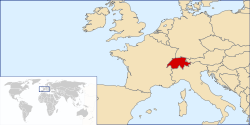Because many operas call for large-scale productions, opera houses are usually large – generally more than 1,000 seats and often several thousand seats. Many operas do not require large-scale productions and may be presented in smaller theaters.
In a traditional opera house, the auditorium is normally U-shaped, with the length of the sides deciding the audience capacity. Around this are tiers of balconies, and often, nearer the stage, are boxes (small
 partitioned sections of a balcony where a wealthy lady can sit comfortably in a wide-skirted ballgown). An opera house generally has a spacious orchestra pit, where a large number of orchestra players may be seated at a level below the audience, so that they can play without overwhelming the singing voices. The size of an opera orchestra varies, but for some operas, oratorios and other works, it may be very large — for some romantic period works, it can be well over 100 players. Similarly, an opera may have a large cast of characters, chorus, dancers and supernumeraries. Therefore, a major opera house will have extensive dressing room facilities. Opera houses often have on-premises set and costume building shops and facilities for storage of costumes, make-up, masks, and stage properties, and may also have rehearsal spaces.
partitioned sections of a balcony where a wealthy lady can sit comfortably in a wide-skirted ballgown). An opera house generally has a spacious orchestra pit, where a large number of orchestra players may be seated at a level below the audience, so that they can play without overwhelming the singing voices. The size of an opera orchestra varies, but for some operas, oratorios and other works, it may be very large — for some romantic period works, it can be well over 100 players. Similarly, an opera may have a large cast of characters, chorus, dancers and supernumeraries. Therefore, a major opera house will have extensive dressing room facilities. Opera houses often have on-premises set and costume building shops and facilities for storage of costumes, make-up, masks, and stage properties, and may also have rehearsal spaces.Major opera houses throughout the world often have highly mechanized stages, with large stage elavators permitting heavy sets to be changed rapidly.
 At the Metropolitan Opera, for instance, sets are often changed during the action, as the audience watches, with singers rising or descending as they sing. This occurs, for example, in the Met's productions of Aida and Tales of Hoffman. Although stage, lighting and other production aspects of opera houses often make use of the latest technology, traditional opera houses generally have not had elaborate sound systems, since the singers are normally expected to project unamplified voices. In many opera houses, however, sound systems are being introduced, as some operas or non-opera productions permit amplification.
At the Metropolitan Opera, for instance, sets are often changed during the action, as the audience watches, with singers rising or descending as they sing. This occurs, for example, in the Met's productions of Aida and Tales of Hoffman. Although stage, lighting and other production aspects of opera houses often make use of the latest technology, traditional opera houses generally have not had elaborate sound systems, since the singers are normally expected to project unamplified voices. In many opera houses, however, sound systems are being introduced, as some operas or non-opera productions permit amplification.Often, operas are presented in their original languages, which may be different from the first language of the audience. For example, an opera presented in London may be in the German language. Therefore, modern opera houses have begun to assist audience understanding of the text of the operas by providing supertitles projected over or near the stage and, more recently, a more complex electronic libretto system on individual screens attached to the backs of seats.
...
and more ..From Wikipedia, the free encyclopedia










